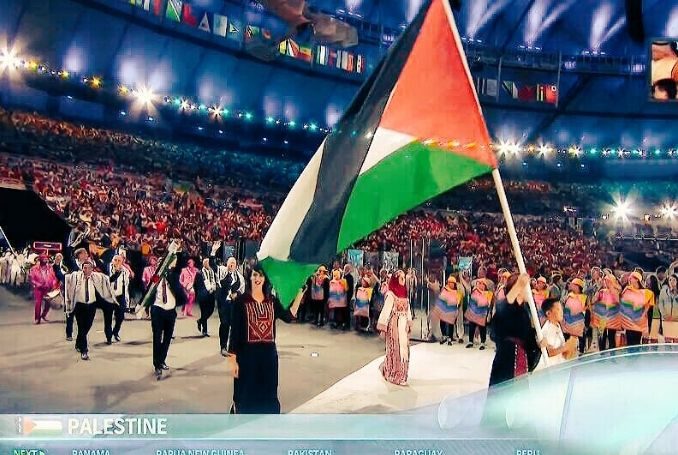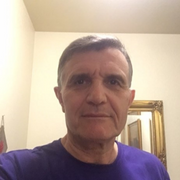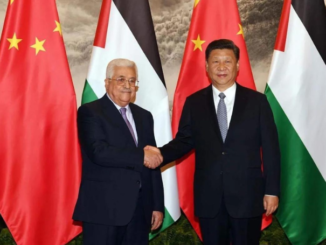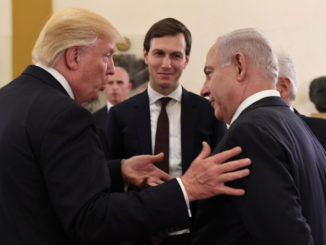
Throughout decades, sports were a mirror that reflected Palestinian reality and portrayed it with all its details. The Palestinian struggle has always been multilateral and sport was one of them. Sports developments have been parallel to and overlapping with political developments, and were not isolated from harsh conditions that were afflicting the Palestinian people before and after the Nakba, Catastrophe, of 1948.
Moreover, sport has been structured and employed to help the Palestinian cause, it went hand in hand with the national-liberation movement – represented by PLO – in the struggle for demonstrating Palestinian national identity and engaging Palestine in the international community.
The first appearance of Palestine at an international level was in the 1930s. It played against Egypt in 1934 and Greece in 1938 in world cup qualifiers. Although this team included only Jewish players, in the end, it represented Palestine, the land and the people. Also, Palestine took part in the International Chess Olympics in 1936 and 1939.
As a reaction to the Zionist domination of the sports arena and the marginalization of the Arabs from the Palestine Football Association PFA (established in 1928, and joined FIFA in 1929) by the Zionists, the Arabs established Palestine Sports Federation PSF in 1931. In September 1944, it was re-established and continued functioning until 1947. Its re-establishment was a turning point in Palestinian sports. In 1946, it applied to join FIFA; however, its application was rejected under the pretext that Palestine could not be presented by two sports organizations (PFA and PSF).
Palestine’s affiliation with Arab sports federations after 1948, and its participation in the Arab tournaments and championships paved the way to enter the international sports arena, thanks to Arab support, which was more generous then than it is now and played a major role in highlighting the image of Palestine on Arab level. Palestine’s engagement in the international sports arena went in two directions: first, its affiliation with international sports federations, which facilitated and accelerated Palestine’s participation on the international level; second, its participation in international sports events, tournaments, and championships.
After 1948, the Palestine Sports Federation continued to exist. Documents that were found in FIFA’s archive show that PSF kept existing. It decided to continue applying for the affiliation into FIFA in 1951 (Abdel Rahman al- Habbab then-Secretary of PSF). No further information about this application was mentioned. Obviously, FIFA had rejected the application under the pretext that the West Bank was not an independent entity and under the rule of the Hashemite Kingdom of Jordan.
In Gaza, the Palestine Sports Federation was founded in 1962. It applied to join FIFA. Its application had been rejected under the pretext that Gaza was a territory under control [of Egypt] and not an independent nation. Nevertheless, at that time, three associations – table tennis, basketball and track and field – had been admitted to their respective international associations.
The first participation of Palestine on the international level was in 1966 in Phnom Penh, in North Korea, in the Games of the New Emerging Forces (GANEFO), that’s to say the games set up by Indonesia as a counter to the Olympic Games. The delegation was headed by veteran sports activists Zaki Khayyal, Zuhair Dabbagh, and Elias Manneh.
The Palestine Liberation Organization (PLO) was established in 1964 and has been the embodiment of the Palestinian national movement. It has established departments that are responsible for several important spheres of work, each headed by a member of the Executive Committee. The departments include, among others, the Political Department, the Department of Returnees, the Department of Culture and Information, and the Department of Popular Organizations.
In 1969, the PLO issued a decree to establish the Supreme Council for Youth Welfare (the name was changed in 1974 to the Supreme Council for Youth and Sports SCYS). Later, committees for youth welfare have been formed in Syria, Lebanon, Iraq, Egypt, and Kuwait. The headquarters of the council was in Amman and then moved to Lebanon.
Palestine’s participations on international level were not only limited to football, but they also included other sports, the most important was its participation in table tennis and chess in several international tournaments. The chess master Ala’ Mousa took part in the World Championship for U-20 Youth in the Philippines in 1987 where he received the best results among Arab participants. Palestine took part in Asian Cities Chess Championship in Dubai in 1990, and in the Philippine Olympics in 1992. Ala’ Mousa won third place, and had been awarded the title of international master.
In bodybuilding, Zarif Shabana achieved results at an international level, he took part in many international tournament and competitions such as “Mr. Universe”, “Mr. Ward”, and “Mr. International”. His picture appeared on the cover of “Iron Man” magazine in July 1980.
As for football, the beginning of the emergence of Palestine on an international level was through the parties that showed sympathy with the Palestinian cause, such as international labor organizations and socialist countries. In 1982, a sports protocol between Supreme Council for Youth and Sports and the French Labor Federation was signed. The latter invited Palestinian national football team to conduct several matches with French teams in France. Palestine also participated in the International Friendship Tournament that was held in the former Soviet Union in 1986 and 1987.
In 1975, sports activists in the West Bank established Rabitat al-Andiya the League of Clubs, which included the majority of the clubs there. In 1980, another Rabita was established in Sector Gaza. Since 1967 until 1994, due to the closure imposed by the Israeli occupation, the West Bank and Sector Gaza were unable to take part in Arab and international competitions. Their participation was very limited.
In April 1984, Shabab Al-Khalil Hebron Youth Club’s team traveled to France via Jordan and played with St. Etienne, Annecy and Drancy. In September 1986, a protocol of cooperation was signed by the Al-Rabita and a French delegation in charge by the French Workers Federation. Preliminary consultations also took place between Al-Rabita and the Italian Federation, and a cooperation agreement was signed in 1989.
Since late 1960s until 1994, Palestinian sports movement in Diaspora was administratively subject to PLO. Many clubs were run by Palestinian factions such as Fatah, the Popular Front for the Liberation of Palestine, the Democratic Front for the Liberation of Palestine, and Saiqa. While in the West Bank and Gaza Sector, in the 1970s and 80s social-athletic clubs and civil society organizations were part of the national movement whose line was parallel to the PLO.
In 1971, the Palestine Football Association was formed. In 1978, PFA submitted an application to join FIFA, but its efforts were in vain. It repeated its efforts again in 1979 but with no positive results. In order to achieve this goal PFA continued its coordination with the Arab Football Association AFA (Palestine joined AFA in 1974) which offered enormous support. In 1993, depending on the new political conditions (ratification of the Oslo Agreement), and on the admission of the Palestine Olympic Committee in IOC as observer, PFA applied again. Unfortunately, its application was rejected under the pretext that Palestine has no regional status. However, this did not prevent PFA from continuing its efforts.
On November 20, 1993, it sent a letter to FIFA President Joao Havelange:
“For a long time, the Palestinian Football Federation has hoped to be affiliated to the Federation Internationale de Football Association (FIFA). Football has always been played in Palestine, and our teams are known to be well trained and organized in the area. Prior to this date, our application for the affiliation into FIFA was not accepted, due to our status in the International Olympic Committee. On September 27th, 1993, we have become officially affiliated into the International Olympic Committee. The Palestinian Football Federation wished to be affiliated into FIFA, and become an active member, as soon as possible.”
In May 1995, the PFA was granted the status of provisional member in FIFA. Considering the prevailing situation regarding Palestine, the Executive Committee nevertheless made the following two restrictions: First, the Palestinian Football Federation may only play friendly matches. Second, the Palestinian Football Federation may only play these matches in the territory of another national association affiliated to FIFA (provided that the national association concerned gives their authorization).
In June 1998, PFA was affiliated into FIFA as a full member at its 51st Ordinary Congress, held in Paris on June 8th 1998. As it has been mentioned, Palestine had been waging a long struggle to get their association admitted to FIFA since 1946.
In 1975, the Palestinian Olympic Committee POC was formed. It was accepted into Arab Federation for Sports Games in 1978. It applied to join the International Olympic Committee in 1979, but its application was rejected, so it resubmitted the application in 1980 during the Olympic Games in Moscow, however the Asian Olympic Committee suggested to postpone the application. There was another attempt during the Olympics in Los Angeles in 1984, but it ended with the rejection of the application.
In 1986, POC was admitted in the Olympic Council of Asia during the Asian Games in Seoul. In 1989, the Committee began to coordinate through Sports Federation of French Workers and the Italian Federation of Popular Sports in order to establish campaign for Palestine’s admission to the International Olympic Committee. The head of the Italian Federation of Popular Sports announced that a number of Italian sports celebrities had signed a petition calling on the IOC to give Palestine its legitimate seat, especially after the declaration of the Independent Palestinian State.
Unfortunately, these efforts did not succeed in getting the international Committee to recognize the Palestinian Olympic Committee. In 1990, the POC received an official invitation to participate in the Asian Games in China in 1990. In 1993 Palestine received provisional recognition from the IOC. It was officially admitted in 1995. This recognition marked the beginning for Palestine to enter the international field, which contributed to its participation in the Atlanta Olympics in the United States in 1996.
– Issam Khalidi is an independent scholar, is the author of History of Sports in Palestine 1900-1948 (in Arabic), One Hundred Years of Football in Palestine (in Arabic and English), co-edited Soccer in the Middle East, as well as articles and essays on the subject of sports included at www.hpalestinesports.net. He contributed this article to The Palestine Chronicle








